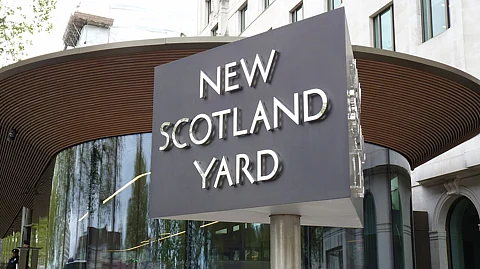

A London jury on Friday convicted three Bulgarian nationals of conducting espionage for Russia. The spy ring, allegedly directed by an internationally wanted Austrian businessman, Jan Marsalek, operated across Europe between 2020 and 2023, targeting journalists, Ukrainian soldiers, and other individuals deemed threats to the Russian state.
Marsalek, a fugitive believed to have fled to Russia after the collapse of the German payments company Wirecard in a multibillion-euro fraud scandal, is accused of orchestrating the operation. The convicted individuals—Katrin Ivanova, 33, Vanya Gaberova, 30, and Tihomir Ivanov Ivanchev, 39—were found guilty at London's Central Criminal Court following a trial that began in November.
Sophisticated Operation Uncovered
Commander Dominic Murphy, head of the Metropolitan Police's counterterrorism unit, described the operation as "extremely sophisticated," noting that it involved advanced surveillance equipment typically seen in spy novels. Devices were discovered in locations including Great Yarmouth and London.
The group allegedly conducted surveillance on Bulgarian investigative journalist Christo Grozev, known for exposing Russian operatives involved in the 2018 poisoning of Sergei and Yulia Skripal in Salisbury, England. They also monitored Ukrainian soldiers training at a U.S. military base in Germany, with the intent of tracking them upon their return to Ukraine.
Prosecutors revealed that the trio acted on orders from Russian intelligence, endangering lives through their activities. Thousands of messages recovered by police detailed plans to kidnap, kill, or ensnare targets in so-called "honeytrap" romances. Among the alleged plots was a scheme to lure Grozev into a romantic relationship with Gaberova, as well as discussions about kidnapping or assassinating him.
Complex Web of Relationships and Espionage
The spy ring's operations were further complicated by the personal relationships among its members. Ivanova and Gaberova were romantically involved with their handler, Orlin Roussev, 47, who previously pleaded guilty to espionage charges. Roussev, described as the ringleader, allegedly took direction from Marsalek, who is believed to have ties to Russian intelligence agencies.
The group also included Biser Dzhambazov, who lived with Ivanova but was simultaneously in a relationship with Gaberova. Police reportedly found Dzhambazov and Gaberova in bed together during arrests. Ivanchev, a painter by profession, had also been romantically involved with Gaberova in the past.
In addition to their espionage activities, the defendants held various civilian jobs. Gaberova worked as a beautician, Ivanchev as a painter, and Roussev had previously served as the chief technology officer for a London financial firm.
Extensive Surveillance Equipment Seized
The police investigation uncovered a vast array of surveillance tools, including 221 mobile phones, 495 SIM cards, 11 drones, and devices capable of extracting data from phones and intercepting Wi-Fi communications. The scale of the operation underscored the group's extensive reach and resources.
Two other defendants, Roussev and Dzhambazov, had already pleaded guilty to espionage and possessing false identity documents prior to the trial. The convictions mark a significant development in a case that highlights the ongoing threat of Russian espionage in Europe.
The trial revealed the lengths to which the spy ring went to carry out its operations, blending personal relationships with professional espionage in a complex and dangerous web of activities.